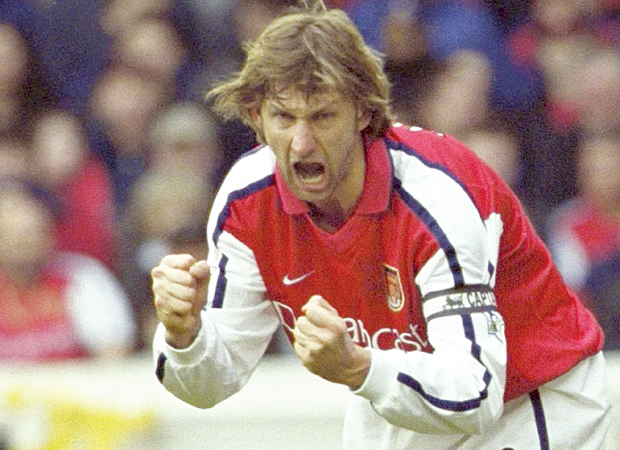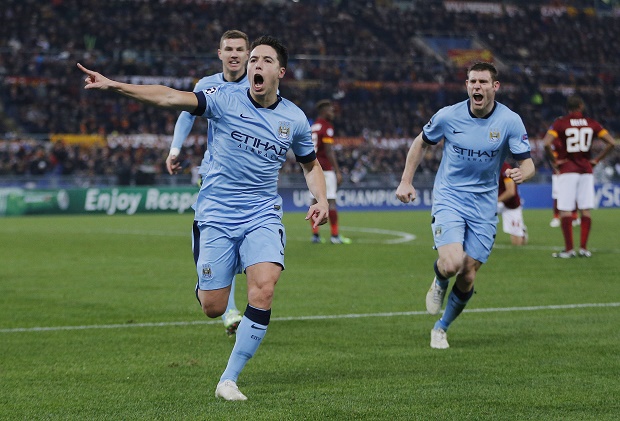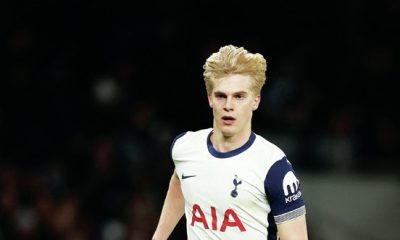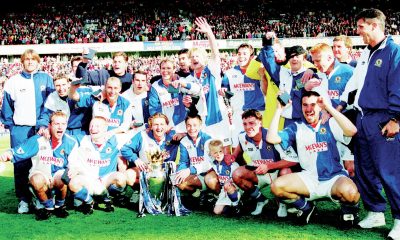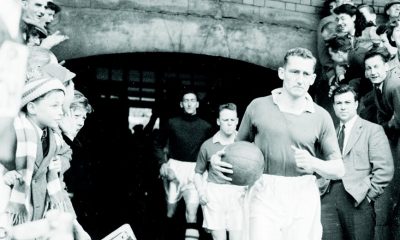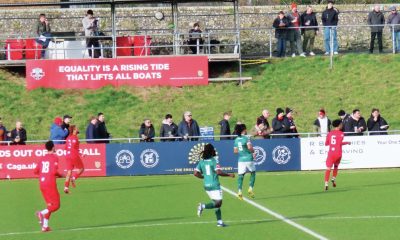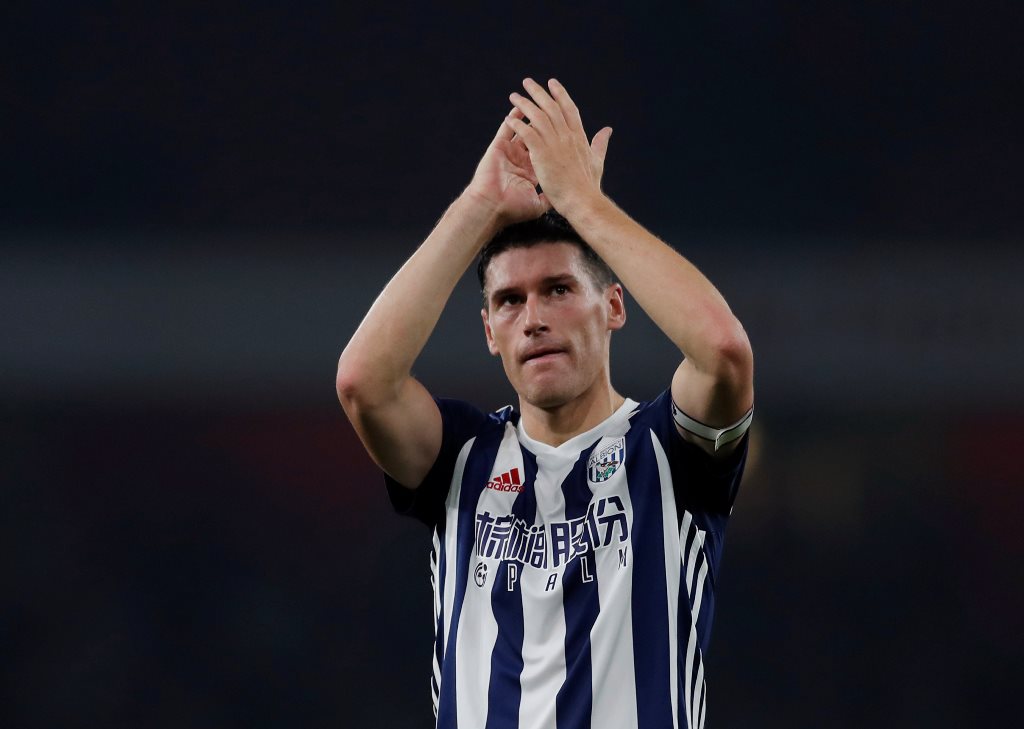

(Photo: Action Images via Reuters)
By John Wragg
THE Villa manager, John Gregory, set it up. The first interview Gareth Barry had ever done.
He was 17 years old and had just signed his first professional contract.
“There you are Johnny boy,” said JG. “This is Gareth Barry. He’s going to be a player. And he’s a millionaire at 17.”
Barry was shy. It was hard to get a few successive words out of him. He was a lad from Hastings, East Sussex not used to all this glare of publicity.
After about half an hour with Gareth, polite but reticent, I had to go back to Gregory to fill in the many gaps. He was effusive, both about Barry on the field and off it.
“We’ve got a good one here. Not sure yet where his best position is. Not blessed with a lot of pace, but he’s a good footballer Johnny boy, you mark my words.”
Barry’s move to Villa from Brighton where he was a trainee in 1997 caused a right row. Villa took him and Michael Standing amid accusations of poaching and in the end a tribunal decided on a fee of £2.5m for the both of them.
Liverpool subsequently bid over £15m for Barry 11 years later, Villa manager Martin O’Neill getting into a big row with the Anfield club about it and a year later Barry went to Manchester City for £12m.
Everton got a bargain when they first took him on loan from City and then signed Barry full time when his Manchester City contract was up. To get the best price for your accumulator check out how to view different betting odds.
Just recently Tony Pulis did the same, getting Barry for £1m at West Brom because he had been told he wouldn’t be playing much anymore for Everton.
And still, after all these years and a record number of Premier League games, Barry wants to go on. And on.
Barry is 36 now. He’s passed Ryan Giggs’ Premier League appearance record of 632 and is thinking of clocking up 700.
Mentally, Barry is strong. He blew a fuse when O’Neill wouldn’t let him go to Liverpool, accused O’Neill of doing nothing to offer him a new contract and said he wanted to play Champions League football.
O’Neill was having none of it. He thought Liverpool had tapped up Barry and took the Villa captaincy off him, fined him two weeks wages and made him train with the kids.
It shows Gareth is not always placid. There’s fire in the belly and a determination to succeed and get what he wants.
“You get a lot of changes, ups and downs, things you can’t control. You have to think it through. You can’t be negative about situations,” says Barry.
When he first joined Villa no-one was sure where Barry should be playing.
He joined Villa at 16 years old because he thought he’d get games there, an ideal that has stayed with him.
“It was a bit of a trial case when myself and Michael Standing left Brighton because in those days you came through the ranks and you stayed at the club,” he says.
The money Brighton eventually got helped them through some dire times. They were playing not very well in what is now League Two and were close to going out of business. The two-and-a-half million helped even if Brighton did have to sell their Goldstone Ground in the end when the debts piled too high.
Barry had not even played a youth team game at that stage but going full-time at Villa and working with coaches Tony McAndrew, Kevin MacDonald, who is still running Villa’s under-23s, and ex-first team star Gordon Cowans brought him on in leaps and bounds.
Barry had always played in midfield but at Villa he played at full-back and as one of three centre-halves in a first team trio of current England captain Gareth Southgate and the late Ugo Ehiogu.
It was May 2, 1998 when Barry played his first game, a 49th minute sub in a 3-1 away win at Sheffield Wednesday. Barry was 17 and 69 days old.
The Clinton and Lewinsky scandal broke that year, Titantic was on at the pictures.
Dwight Yorke, Lee Hendrie and Julian Joachim scored. Simon Grayson, now managing Sunderland, was in the Villa team and Barry came on for Ian Taylor. No one else from that Villa team is still playing.
Man-of-the-match was Joachim. Sheffield Wednesday manager Ron Atkinson slammed his side for not caring. Gregory was hoping for European football and he was to get his wish.
Barry was not mentioned in reports.
“It was the perfect environment for any youngster coming in and looking to learn the ropes,” says Barry of his early years.
“I was fortunate that things were going well most of the time, Villa were challenging for the top six, we had a good side.”
By 2009 Barry had his big choice to make – move to Liverpool or Man City.
At the time it was a gamble to go to City. The huge cheques were just being signed, the Sheikh revolution was getting underway and Barry was swayed by the golden vision.
“I had a good feeling about it, the lure of being part of a team that could win trophies. It turned out to be a good choice although at the time no one was sure it was going to happen.”
Barry was at Manchester City for four years, winning the first trophy of the Sheikh Years, the FA Cup final victory over Stoke in 2011.
“That cup meant a lot to me. I’d been around a while by then, played a lot of games and it was a relief to get that first winner’s medal.”
It was also the first cup Manchester City had won for 35 years. The Premier League title followed the next season and for Barry there were 53 England caps and three goals.
“The England caps come in a parcel through the post,” he told me in another interview. “When the parcel drops on the mat my kids love it, something to play with.”
Barry’s best England years were under Steve McClaren and Fabio Capello and he went to the 2010 World Cup in South Africa.
“We went out to Germany with that Frank Lampard goal that wasn’t given.”
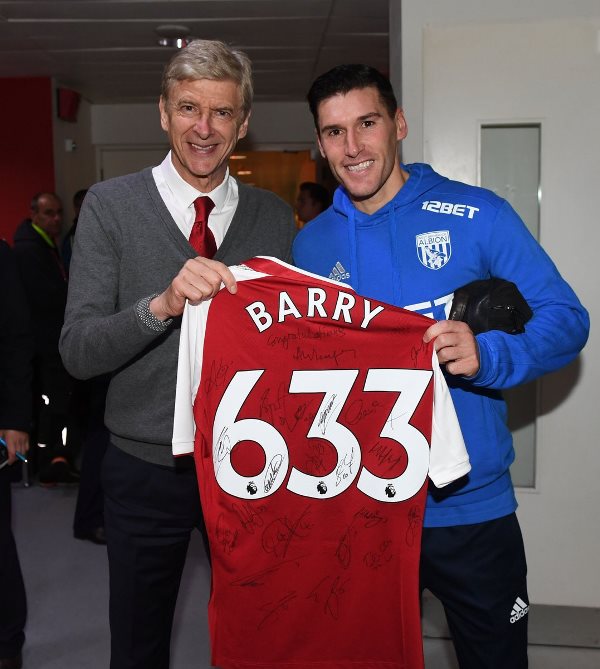
Last season Barry was Everton player of the season and players’ player of the season, a resounding vote of confidence that was not shared by his manager, Ronald Koeman.
Barry had left City because he was told he wouldn’t be playing as much and after successful years under Roberto Martinez at Everton, Koeman came up with the same speech.
“I want to play regularly. I still feel I have a lot to offer,” says Barry.
“I’d love to tell you I do things differently, but I haven’t got a special routine or I’m 100 per cent dedicated to my body and don’t eat junk food. It’s not true. I lead a normal life.
“I’ve changed some things. I do an extra warm-up in the morning, I do yoga and look after myself better on the recovery days.
“But there is not a ‘plan’. It’s just good genes from my mum and dad.”
Barry has only been at West Brom for a small part of his marathon career but the club devoted six pages to him in the club programme for the West Ham home game when he equalled Giggs’ record. There were TV interviews and a special Gareth Barry media morning in the build-up to the record-breaking Arsenal game, his 633rd Premier League appearance.
But what happened to his Brighton colleague Michael Standing?
He played 151 games in midfield for Bradford City, Walsall, Chesterfield, Bournemouth, Oxford United, Grays, Lewes and Shoreham.
Then Barry appointed his best mate from school as his agent. A marathon friendship for football’s marathon man.


Book Reviews
Book Review: Chris Towers finds right mix

Book Reviews
Book Review: Sir Geoff Hurst hits net
